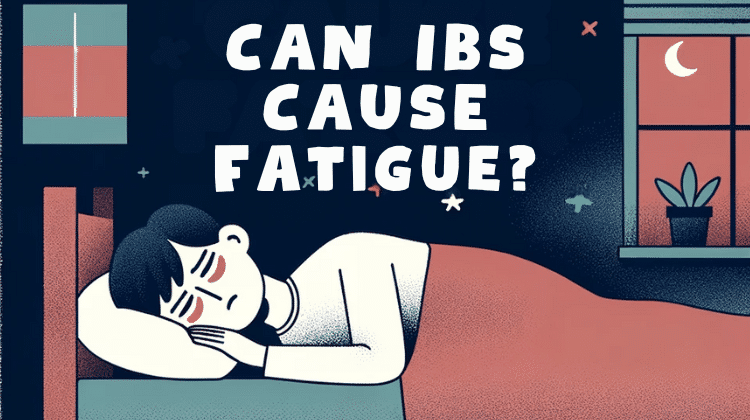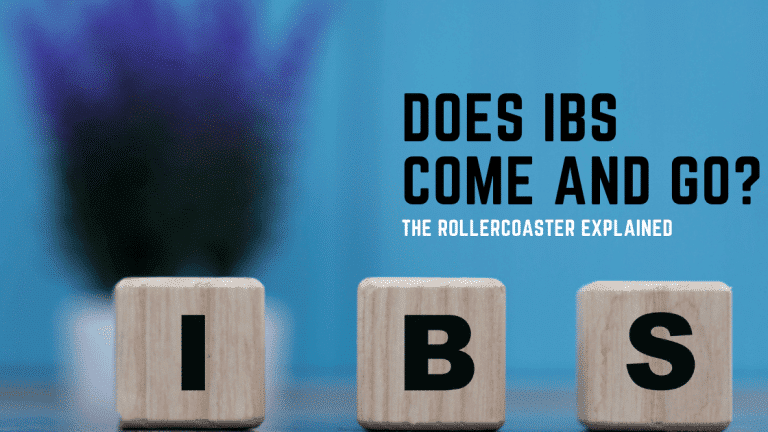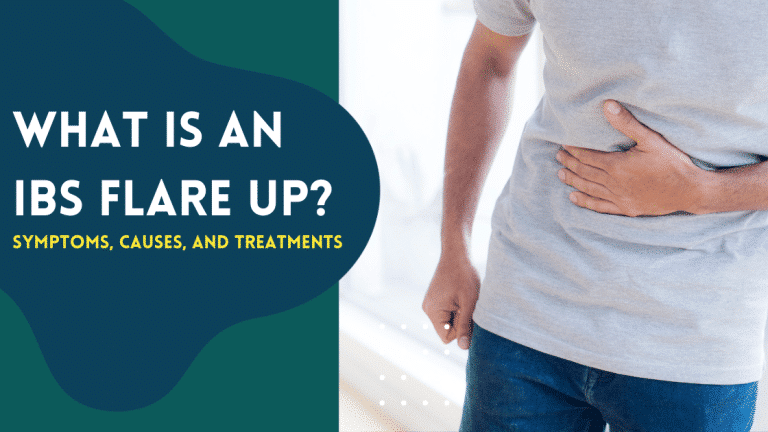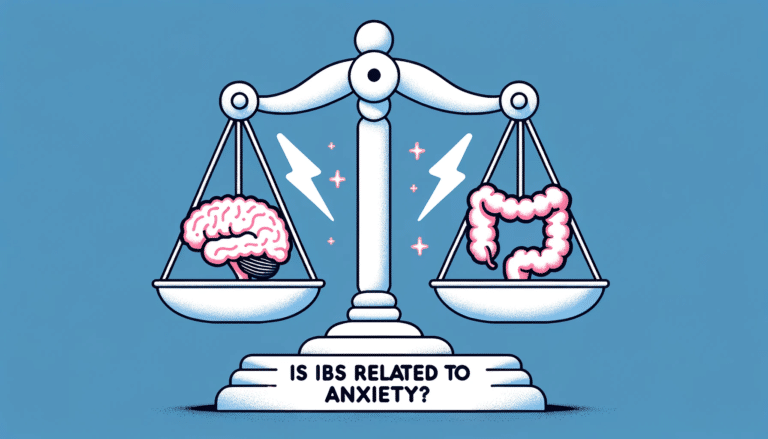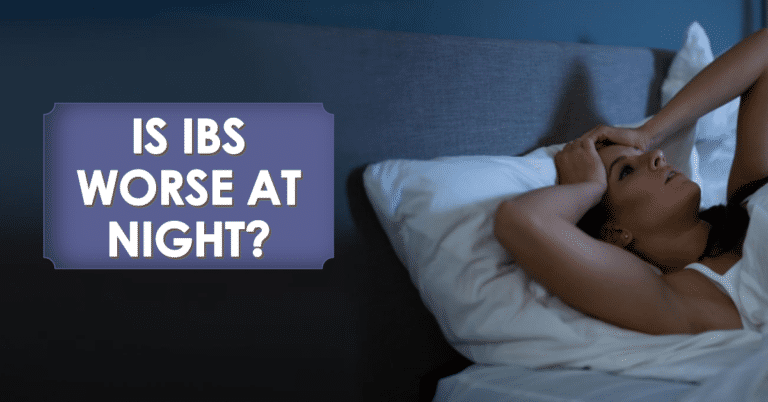IBS And Night Sweats: The Hidden Reason You Wake Up Drenched?

Tossing and turning, drenched in sweat night after night?
Your IBS may be to blame.
Studies show a clear connection between IBS and disrupted sleep, with night sweats being a common complaint [1].
The root cause? An overactive fight-or-flight response. IBS triggers your nervous system, spiking cortisol levels that disturb sleep and cause night sweats.
Ready to break the cycle? Read on for a step-by-step guide to managing your IBS so you can sleep through the night.
Key Takeaways
- IBS can disrupt the body’s normal processes, including temperature control [2].
- The autonomic nervous system (ANS) regulates body temperature and can be overstimulated by IBS [3].
- Night sweats can be triggered by distress signals from the gut to the brain [4].
- Anxiety, a common comorbidity with IBS, can worsen night sweats.
Understanding the Link Between IBS and Night Sweats
There’s a surprising connection between IBS and night sweats that we’re about to delve into.
When you’re dealing with IBS, your body’s normal processes can go haywire. This includes your autonomic nervous system, which controls body temperature.
When your gut’s in turmoil, it can send distress signals to your brain, triggering an overreaction in your body’s temperature control.
Night sweats can then occur as a result. It’s also worth noting that anxiety, a common comorbidity with IBS, can exacerbate this issue.
Understanding this link is crucial, not just for managing your symptoms but also for achieving a deeper understanding of your body’s responses.
How IBS Triggers Night Sweats: A Deep Dive
Understanding how your digestive issues trigger excessive sweating during sleep can seem complex, but let’s take a deep dive into this topic.
Your body operates like a thermostat. When IBS symptoms flare, they can disrupt this thermostat, leading to night sweats.
-
IBS and Autonomic Nervous System (ANS) Your ANS regulates body functions like temperature. IBS can overstimulate the ANS, causing you to sweat more.
-
IBS and Inflammation IBS may increase inflammation in your body. This inflammation can result in a fever response, leading to sweats.
-
IBS and Stress IBS often leads to stress, which can also trigger sweating.
An Overview of Night Sweats as a Symptom of IBS
It’s crucial to note that excessive perspiration during sleep is a common symptom in people suffering from irritable bowel syndrome.
This is not just about waking up sweaty; it’s a significant issue that can disrupt your sleep and overall well-being.
Now, let’s look at some factors contributing to this phenomenon.
| Factor | Description |
|---|---|
| Anxiety | IBS can cause significant stress, leading to night sweats. |
| Hormonal Imbalance | Hormones like serotonin affect both IBS and temperature control. |
| Inflammation | IBS-related inflammation may disrupt body temperature regulation. |
| Diet | Certain foods can exacerbate IBS symptoms, including night sweats. |
| Medications | Some IBS medications may have night sweats as a side effect. |
Understanding these factors can help you better manage IBS and its effects on your sleep.
Practical Tips to Manage Night Sweats in IBS Patients
To manage excessive perspiration during sleep, especially for individuals dealing with irritable bowel syndrome (IBS), here are some practical tips:
Create a cool sleeping environment:
- Use breathable bedding materials like cotton or linen.
- Keep your room’s temperature low by using a fan or air conditioning.
Incorporate regular exercise into your routine:
- Engaging in physical activity can help reduce night sweats.
- Choose exercises that you enjoy and are suitable for your fitness level.
Watch your diet:
- Limit the consumption of spicy foods and caffeine as they can trigger both IBS symptoms and sweating.
- Stay hydrated throughout the day, but avoid drinking excessive fluids before bedtime to prevent sleep disruptions.
Manage stress effectively:
- Practice stress management techniques such as mindfulness, yoga, or cognitive-behavioral therapy.
- Find relaxation methods that work best for you and incorporate them into your daily routine.
Remember, it is always advisable to consult with your healthcare provider for personalized advice and guidance specific to your situation.
The Impact of IBS-Related Night Sweats on Sleep Quality
Excessive perspiration related to digestive issues can significantly disrupt your sleep quality, leading to fatigue and reduced productivity during the day. This is particularly true if you’re coping with Irritable Bowel Syndrome (IBS).
These night sweats, often a hidden symptom of IBS, can cause you to wake up drenched and unable to fall back asleep easily.
The disturbed sleep cycle not only leaves you feeling exhausted but also exacerbates your IBS symptoms. It’s a vicious cycle that can be hard to break.
However, by understanding the link between IBS and night sweats, you’re already one step closer to managing the problem.
Ultimately, improving your sleep quality will have a profound effect on your overall well-being and productivity.
IBS And Night Sweats – The Bottom Line
Struggling with IBS and poor sleep? Take control by identifying triggers through food/symptom journaling and making lifestyle changes gradually.
Prioritize sleep consistency and optimize your bedroom for rest. Unwind fully before bed with relaxing rituals.
Consider Nerva to reduce IBS symptoms and improve gut-brain connection. Be patient and kind to yourself through ups and downs.
By tuning into your body’s clues and making personalized adjustments, you can balance gut health, sleep better, and thrive with IBS.
Disclaimer: This content is based on my personal experience as an individual diagnosed with celiac disease and IBS (Irritable Bowel Syndrome) who follows a strict gluten-free diet. This does not constitute medical advice. Please consult a medical professional, nutritionist, or qualified dietitian for personalized, professional advice.

